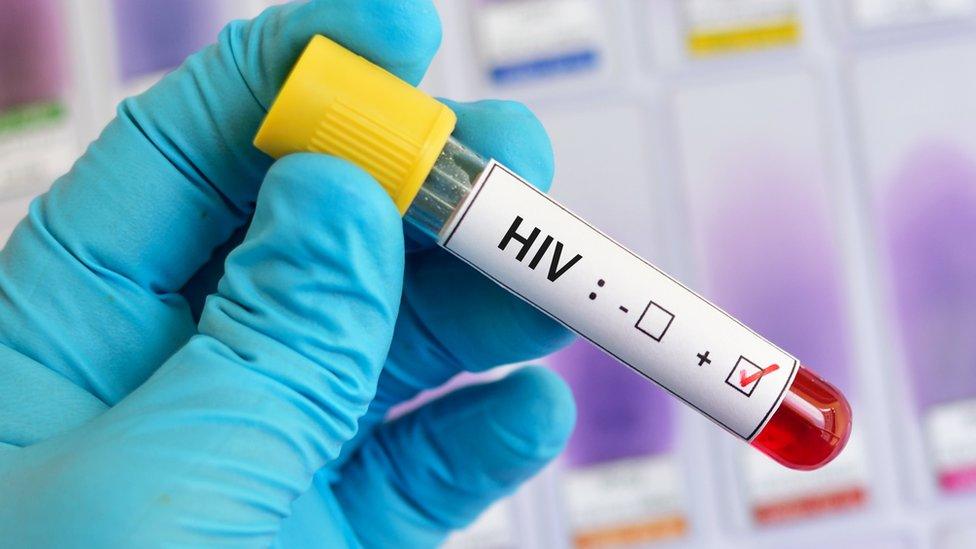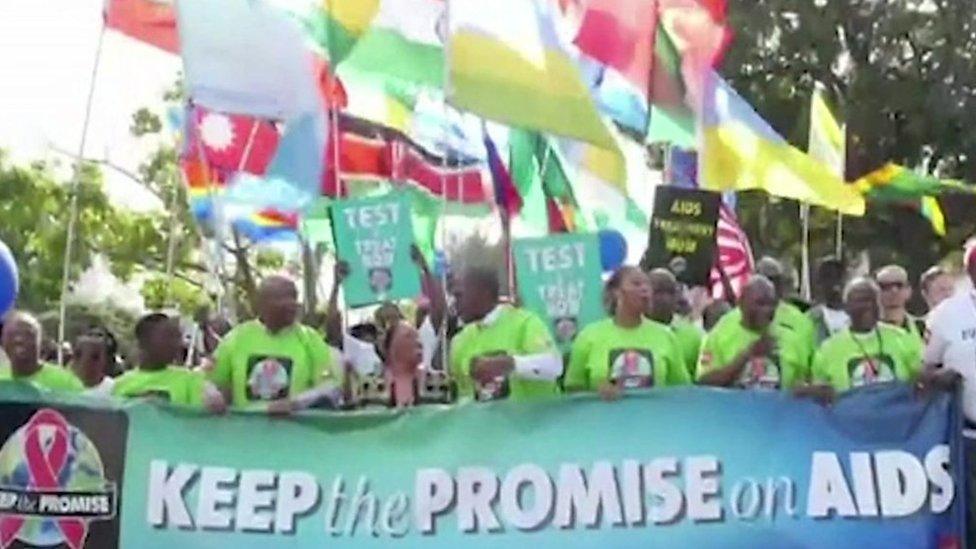HIV findings in DR Congo 'give hope for cure'
- Published

The researchers were surprised by their findings
The discovery of a large group of people whose bodies naturally control HIV without taking medication is leading to hopes of an eventual cure, scientists say.
The study found as many as 4% of HIV carriers in the Democratic Republic of Congo were able to suppress the virus.
Typically less than 1% of people with HIV are able to do so.
This could serve as springboard for further research to develop a vaccine or new treatments to tackle the virus that causes Aids, researchers say.
"When we first started to see the data coming in from the study we were surprised, but we were also elated," Mary Rodgers, the study's lead scientist, told the BBC.
"This could mean that this is something that we can actually cure," she said.
The findings, published in eBioMedicine, external which is part of The Lancet family of medical journals, looked at samples taken FROM people living with HIV between 1987 and 2019.
The team included scientists from pharmaceutical company Abbott, Université Protestante au Congo, Johns Hopkins, the US National Institute of Allergy and Infectious Diseases, and University of Missouri - Kansas City.
Mary Rodgers: "This group of people gives us hope"
Dr Rodgers, head of Abbott's global viral surveillance programme, said the group in DR Congo was the biggest detected in one country - between 2.7% and 4.3% . Another 1% of people living with HIV in Cameroon were also identified as controlling the virus well without medication.
"This has never really been seen before, typically we would find less than 1% of all people with HIV who are able to suppress the virus naturally."
Currently, most people living with HIV have to take anti-retroviral medicines daily to suppress the virus and reduce their viral load.
It is not yet known how the so-called "elite controllers" discovered in DR Congo are able to suppress their HIV infection.
But Dr Rodgers said understanding how the group was able to maintain low or undetectable viral loads would be crucial to controlling the virus.
However she stressed the need for more research, while pointing to previous studies that showed this group of people potentially lose their protection as the disease progresses.
HIV came to global attention in the 1980s. It has infected 76 million people since then and 38 million people are living with the virus, Abbott says.
It is believed to have originated in what is now DR Congo a century ago, and today HIV disproportionately affects women in sub-Saharan Africa.
Related topics
- Published2 March 2021

- Published20 July 2016

- Published3 October 2014
